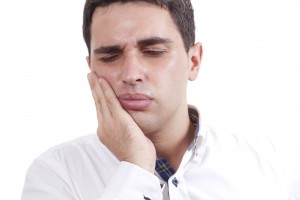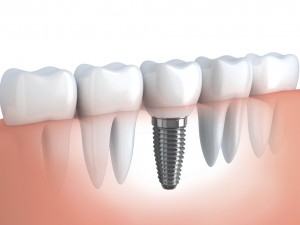Bruxism is the excessive grinding of the teeth and/or excessive clenching of the jaw. Bruxism can be very damaging to your teeth and jaw. Teeth grinding can be caused not just by stress and anxiety but by sleep disorders, an abnormal bite or teeth that are missing or crooked. It’s imperative if you grind your teeth to see your dentist right away. Your dentist can fit you with a mouth guard needed to protect your teeth during sleep and develop a long term solution to your teeth grinding problem.
Why Do People Grind Their Teeth?
Although teeth grinding can be caused by stress and anxiety, it often occurs during sleep and is more likely caused by an abnormal bite or missing or crooked teeth.
How Do I Find Out if I Grind My Teeth?
Because grinding often occurs during sleep, most people are unaware that they grind their teeth. However, a dull, constant headache or sore jaw is a telltale symptom of bruxism. Many times people learn that they grind their teeth by their loved one who hears the grinding at night. You dentist can also examine your jaw and abnormalities with your teeth.
Why Is Teeth Grinding Harmful?
In some cases, chronic teeth grinding can result in a fracturing, loosening, or loss of teeth. The chronic grinding may wear their teeth down to stumps. When these events happen, bridges, crowns,root canals, implants, partial dentures, and even complete dentures may be needed.
Not only can severe grinding damage teeth and result in tooth loss, it can also affect your jaws, result in hearing loss, cause or worsen TMD/TMJ, and even change the appearance of your face.
What Can I Do to Stop Grinding My Teeth?
Your dentist can fit you with a mouth guard to protect your teeth from grinding during sleep.
If stress is causing you to grind your teeth, ask your doctor or dentist about options to reduce your stress. Attending stress counseling, starting an exercise program, seeing a physical therapist or obtaining a prescription for muscle relaxants are among some of the options that may be offered.
Other tips to help you stop teeth grinding include:
- Avoid or cut back on foods and drinks that contain caffeine, such as colas, chocolate, and coffee.
- Avoid alcohol. Grinding tends to intensify after alcohol consumption.
- Do not chew on pencils or pens or anything that is not food. Avoid chewing gum as it allows your jaw muscles to get more used to clenching and makes you more likely to grind your teeth.
- Train yourself not to clench or grind your teeth. If you notice that you clench or grind during the day, position the tip of your tongue between your teeth. This practice trains your jaw muscles to relax.
- Relax your jaw muscles at night by holding a warm washcloth against your cheek in front of your earlobe.
Call your physician or dentist if you have symptoms of bruxism, or if you are told that you grind your teeth while you sleep.
For more information and to make an appointment call, Dr. Kirtley at 317-841-1111 or visit his website smilesbygeorge.com
Dr. George Kirtley welcomes patients from Spring Hill, Beech Grove and Warren Park



